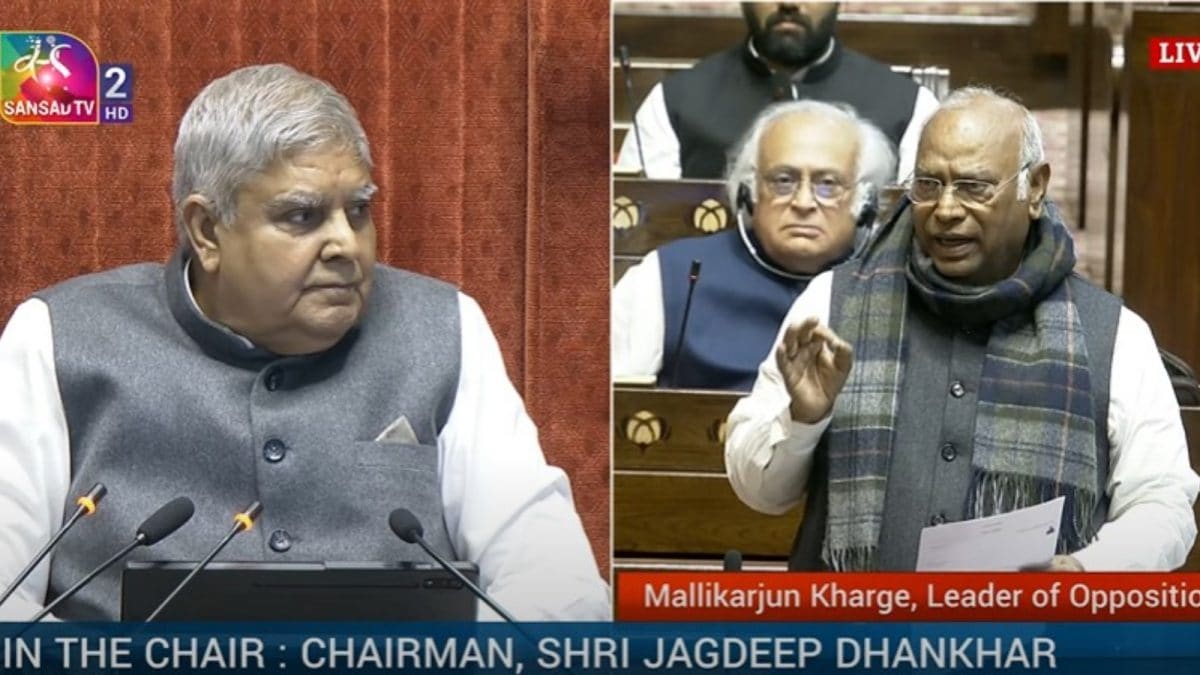 |
|
The Rajya Sabha witnessed a significant showdown on February 13, 2025, centered around the Joint Parliamentary Committee (JPC) report on the Waqf Amendment Bill. The tabling of this report ignited a heated exchange between the ruling government and the opposition, with the latter vehemently accusing the government of removing their dissenting opinions from the final document. This sparked a major political conflict, highlighting deep divisions within the Indian Parliament. The opposition's claim of 'dissent note deletion' immediately escalated the situation, transforming a routine report presentation into a major political battleground. The accusations of censorship and manipulation of parliamentary process were swiftly met with a denial from the government, setting the stage for a prolonged and intense political confrontation.
The heart of the conflict lies in the alleged removal of dissenting notes submitted by opposition members of the JPC. The opposition claims these notes, representing their perspectives and objections to certain aspects of the Waqf Bill, were systematically excised from the final report. This action, they argue, constitutes a blatant disregard for parliamentary norms and a suppression of their voices in the legislative process. Leader of the Opposition Mallikarjun Kharge, in a powerful address to the Rajya Sabha, strongly condemned the alleged manipulation, characterizing it as anti-democratic and unacceptable. He insisted that a report lacking the full range of opinions, including dissenting viewpoints, is inherently flawed and should be rejected. His forceful condemnation underscored the gravity of the situation and the opposition's determination to challenge what they perceive as a violation of their parliamentary rights.
Conversely, the government vehemently refuted the allegations, asserting that no deletions were made to the report. Union Minister Kiren Rijiju, while addressing the House, categorically denied any tampering with the document, stating that the JPC proceedings adhered strictly to established rules and regulations. Government sources further clarified that only remarks deemed 'unparliamentary' – specifically those targeting the JPC chairman, BJP MP Jagdambika Pal – were removed. These sources emphasized that the dissent notes, in their modified form, remain part of the report, although appended in a manner that the opposition considers to be a form of de facto exclusion. The differing interpretations of the situation highlight the inherent ambiguities of parliamentary procedure and the potential for disagreements over what constitutes acceptable dissent.
The clash extended beyond mere verbal exchanges. The opposition staged a dramatic walkout from the Rajya Sabha in protest against the alleged manipulation of the report. This action, while a strong display of dissent, drew a sharp rebuke from Rajya Sabha Chairman Jagdeep Dhankhar, who criticized the opposition for abandoning their 'constitutional obligation.' The walkout further intensified the political tension, showcasing the deep divide and the increasingly strained relations between the government and the opposition. The incident underscores the fragility of consensus-building within the Indian political landscape and the challenges in ensuring transparency and inclusivity in the parliamentary process. The ongoing debate demonstrates the intense scrutiny of legislative processes and the significant power dynamics involved in shaping national policy.
Following the initial walkout and accusations, a meeting took place between Union Minister Kiren Rijiju, Lok Sabha Speaker Om Birla, and opposition MPs. The outcome of this meeting resulted in a partial concession from the government. A decision was reached that the dissent notes of opposition members would be included in the report in their original, unedited form. While this concession partially addressed the opposition's concerns, it also reveals the significant political pressure exerted and the potential for negotiated solutions amidst deep-seated disagreements. The eventual inclusion of the original notes, while a sign of compromise, does not erase the underlying tension and the lingering questions about the integrity of the initial process. The events surrounding the Waqf Bill JPC report underscore the continuing challenge of balancing the differing opinions of the government and the opposition within the framework of democratic parliamentary processes.
The episode surrounding the Waqf Bill JPC report has far-reaching implications. It highlights the importance of maintaining transparency and fairness in parliamentary procedures, and raises questions about the extent to which dissenting opinions are truly considered and incorporated in the final output of legislative committees. The incident also exemplifies the potential for parliamentary proceedings to become highly politicized, with accusations of foul play and manipulation quickly escalating tensions. The long-term consequences remain to be seen, but the event undoubtedly serves as a significant case study in the dynamics of power and disagreement within the Indian Parliament. It highlights the complexities of consensus-building and the persistent struggle to balance the needs and concerns of all stakeholders in the legislative process. Furthermore, the incident raises concerns about the future of legislative oversight and the potential for similar controversies to arise in future parliamentary debates.
Source: Waqf JPC Report Triggers Govt-Opposition Showdown As Congress Alleges 'Dissent Note Deletion'
